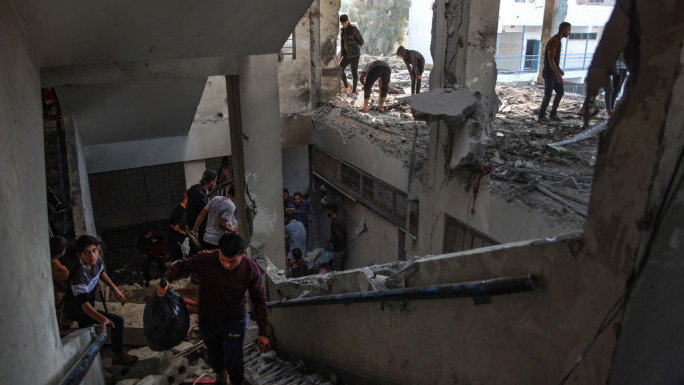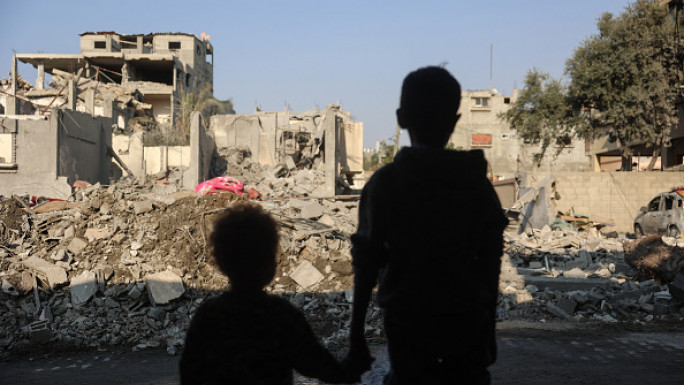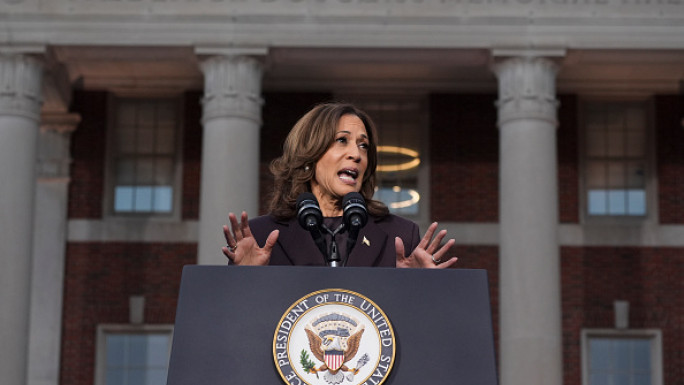
Iran's unfrozen oil revenues fuel domestic anxiety
After the nuclear deal was concluded, conflicting reports emerged on how much cash Iran would get out of sanctions relief immediately.
The US administration first estimated that Iran would receive around $100 billion of previously blocked oil revenues. But Republican Senator Mark Kirk believes that the Iranian regime will get as much as $150 billion back in sanctions relief payments.
The World Bank states that Iran holds $107 billion worth of frozen assets overseas. Inside the country, the numbers are even more confusing: from $29 billion claimed by the Head of the Central Bank, to $180 billion apparently expected by the executive of Tehran province.
The US Congress, mostly the Republican opposition, is concerned about how the unfrozen assets might help Tehran finance its proxies and interventions against US interests. But the Iranians are also concerned about how much the state will receive from sanctions relief - and, more importantly, how the money will be spent.
Fuelling power contests
Iranian officials are sending mixed signals about the amount of blocked oil revenues. On the one hand, inflating the numbers helps to silence sceptics and justify Iran's nuclear compromise. On the other, underestimating the numbers allows authorities to contain public expectations. In that pursuit, some MPs went as far as claiming the money had already been spent.
In fact, the devil is in the details, which can be untangled from the three categories of frozen revenues.
Some of the revenues are blocked by sanctions. This category includes the oil revenues blocked by India, Japan, the UAE and South Korea. According to the head of Iran's Central Bank, this totals around $28 billion and could be paid to Iran after complying with verifiable guarantees from the nuclear agreement.
Other revenues are blocked by collateral agreements. The oil revenues blocked by China, $22 billion, are for collaterals that will be used by Chinese-financed development projects. Iran's central bank chief calls it prepayment for credit. Iran has no access to this cash even after sanctions removal.
| One of the sources of confusion in these categories is the timing of releasing frozen assets. |
The third category of blocked revenues is already spent or committed.
US Treasury Secretary Jacob J Lew told the House Foreign Affairs Committee on July 28 that Iran had pre-existing financial obligations that must be satisfied with much of the impounded money, leaving roughly $56 billion.
Valiullah Seif, the head of Iran's central bank, said that, of roughly $77 billion held abroad, only $29 billion would be usable, because part of it had already been committed to petrochemical investments.
Based on these two statements, the money already spent should be between $44 and $49 billion.
One of the sources of confusion in these categories is the timing of releasing frozen assets. According to the World Bank, $29 billion will be released immediately and the rest depends on how the agreement will be implemented.
Who will benefit?
The sanctions relief will benefit three economic and financial empires in Iran: state companies which receive about 70 percent of the government's annual budget, dozens of companies tied to Iran's Revolutionary Guards, and foundations and companies under the Supreme Leader's office that work exclusively in the country's shadows.
These empires will fight with tooth and claw for a larger share of the released funds. High-profile figures from these empires are already accusing each other of not revealing the amount of oil revenues that will be blocked and the way in which they intend to spend it.
The Supreme Leader's office doesn't even provide a single annual report about the financial situations of its companies and foundations - such as the Headquarters for Executing the Orders of the Imam, or the Veterans Foundation - whose revenues and holdings are estimated in the hundreds of billions of dollars.
We will not know how these companies and foundations will benefit from sanction relief.
These empires have more than 80 percent of Iran's economy within their grip, and oil revenues pass through them first.
| In the past five years, all $100 million dollar contracts and above have been handed to the Revolutionary Guards' companies |
In the past five years, all $100 million dollar contracts and above have been handed to the Revolutionary Guards' companies with no auctions or competition.
The government now owes around $2 billion to these companies. The Guards' business activities are thought to be receiving $10-12 billion from the deal. The big chunk of the third "already spent" category will benefit the Guards who control major oil and construction projects. For this reason, the Guards' commanders have not shown any opposition to the nuclear deal.
What about the public?
It is highly unlikely that the Iranian public will have a fair share of the revenues, neither in the short term nor in the long term. Right after the agreement, against all expectations, the Iranian currency slightly weakened against the dollar and euro.
In an economy in which most necessary goods are imported, this means that services and goods will be more expensive, rather than cheaper. Around two thirds of the country's population who now live under the poverty line will continue to be out of work, or would make an income of around $200 per month.
Out of 63 million people who can work, only 23 million are currently working. Around 50 percent of the population receive low salaries, with pensions and handouts from the government to survive. The public sector has stopped recruiting and the private sector is dismissing its workforce.
As always, the freed money will be spent in three permanent sectors of the Iranian government: corruption due to nepotism and cronyism, military and ideological adventurism, and costly imperial ambitions.
Corruption devours $34 billion of Iran's resources every year. Iran still has to pay a $14 billion fine for violating the Crescent Petroleum oil contract.
Based on all these numbers, nothing will be left for development and infrastructure upgrades. More than $700 billion of oil revenues in the eight years of Ahmadinejad's administration were spent in the same way, and there seems to be little chance that the future will be any different.
Majid Mohammadi is an Iranian-born academic, and the author of dozens of books in Persian and English on politics, arts and religion in Iran.
Opinions expressed in this article remain those of the author and do not necessarily represent those of al-Araby al-Jadeed, its editorial board or staff.


![President Pezeshkian has denounced Israel's attacks on Lebanon [Getty]](/sites/default/files/styles/image_684x385/public/2173482924.jpeg?h=a5f2f23a&itok=q3evVtko)



 Follow the Middle East's top stories in English at The New Arab on Google News
Follow the Middle East's top stories in English at The New Arab on Google News


